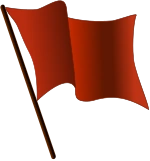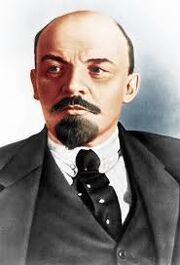
Socialism is a social and economic policy that dictates that the community should be in charge of means of production, the government, and their own laws in opposition to forms of government such as an autocracy or oligarchy. Socialism's economic policy was the even distribution of wealth to the people to help all people have the same chances of success in life, as well as taxing the wealthy more than the poor. The social policy was a strong sense of community, with the people working together to create a country where there was no abusive upper class or a struggling lower class. Socialism became a major ideology in Scandinavia, the British Commonwealth, South America, Africa, Asia, and the Levant, with countries like Norway, the United Kingdom, Egypt, Israel, Syria, Bolivia, and Chile having successful governments. Following World War II and the Cold War, most governments in Europe moved towards social democracy, a liberal ideology with socialist elements; democratic socialism became the prevalent ideology in many developing countries.
History

Socialism originated in the French Revolution, when the public of France sought to take from the wealthy and distribute money and food to the poor. The belief became a popular one among the lower classes, who were often bullied by the upper classes that abused their dependence on them to make them work extra hours for low wages and bad working conditions. In societies like the Russian Empire, United Kingdom, and Prussia, where kings and queens ruled over industrializing nations where the farmers were made poor due to urbanization. In 1848, Karl Marx published the Communist Manifesto, detailing his beliefs that society needed to be restructured through revolution and that the poor people needed to have a say. He believed that the workers themselves could control means of production; critics claimed that the lousy worker would get as much as the most hard-working person, although socialism emphasized the hard work of all people, and those who refused to work would be like the rich people that socialism opposed; they would take advantage of others for their own gain. In addition, socialism was not necessarily about sharing, but instead about the distribution of money to several people by the government, which was ruled by the people.

During the times of the Industrial Revolution and its aftermath, labor unions and socialist organizations were formed to advocate the rights of the workers, and socialism became a common ideology among the lower classes. Socialism was so popular that the UK Labor Party was formed in 1900, the Australian Labor Party in 1901, and the Socialist Party of America in 1901. The Labor Party became a major party in the United Kingdom, competing with the UK Conservative Party for control of the government. Socialism gained its first government when the Russian Revolution occurred in 1917 and allowed for Alexander Kerensky to become the leader of a democratic socialist provisional government. However, it was later overthrown by Vladimir Lenin's Bolsheviks, who adhered to communism, a farther-left version of socialism that emphasized the distribution of goods to the people and the abolition of money. Socialists as well as communists were victims of the First Red Scare of 1917-1923 in the United States, as they were alleged to be infiltrators from the USSR. However, Samuel Gompers and Eugene V. Debs became known as major socialist leaders in America, and socialism became a threat to the major capitalist countries, as capitalism's excesses and its negative impact on the lower classes made socialism and capitalism enemies.

Countries that have historically had socialist governments, socialist economic laws, or socialist influence since 1900.
The Cold War of 1945-1991 was the deciding factor in the split between left and right, with McCarthyism in the 1950s leading to the imprisonment or blacklisting of several leftists in America while Operation Condor in 1973-1983 led to the murder or torture of thousands of people in South America. Socialist governments and movements were fought against by the Americans and NATO, and the Marxist MPLA of Angola were opposed from 1975 until their 2002 victory over Jonas Savimbi and his UNITA nationalists. After the Reunification of Europe in 1991 and the fall of the Iron Curtain, socialism was now an acceptable form of government, with nations like the United Kingdom, Norway, Sweden, and France having socialist leaders and ruling parties. Later, democratic socialism (the belief in socialism through evolution instead of revolution, i.e. through peaceful elections) and social democracy (the reforming instead of abolition of capitalism) were rooted in socialism, and the latter became a major belief system in many countries across the world, while the original form of socialism was largely abandoned in the favor of communism or the two progressive branches of socialism. Today, some countries like Canada, Norway, Denmark, and Chile have some socialist policies, with governments ruled by liberal governments sometimes having socialist economic policies like welfare or free education.

